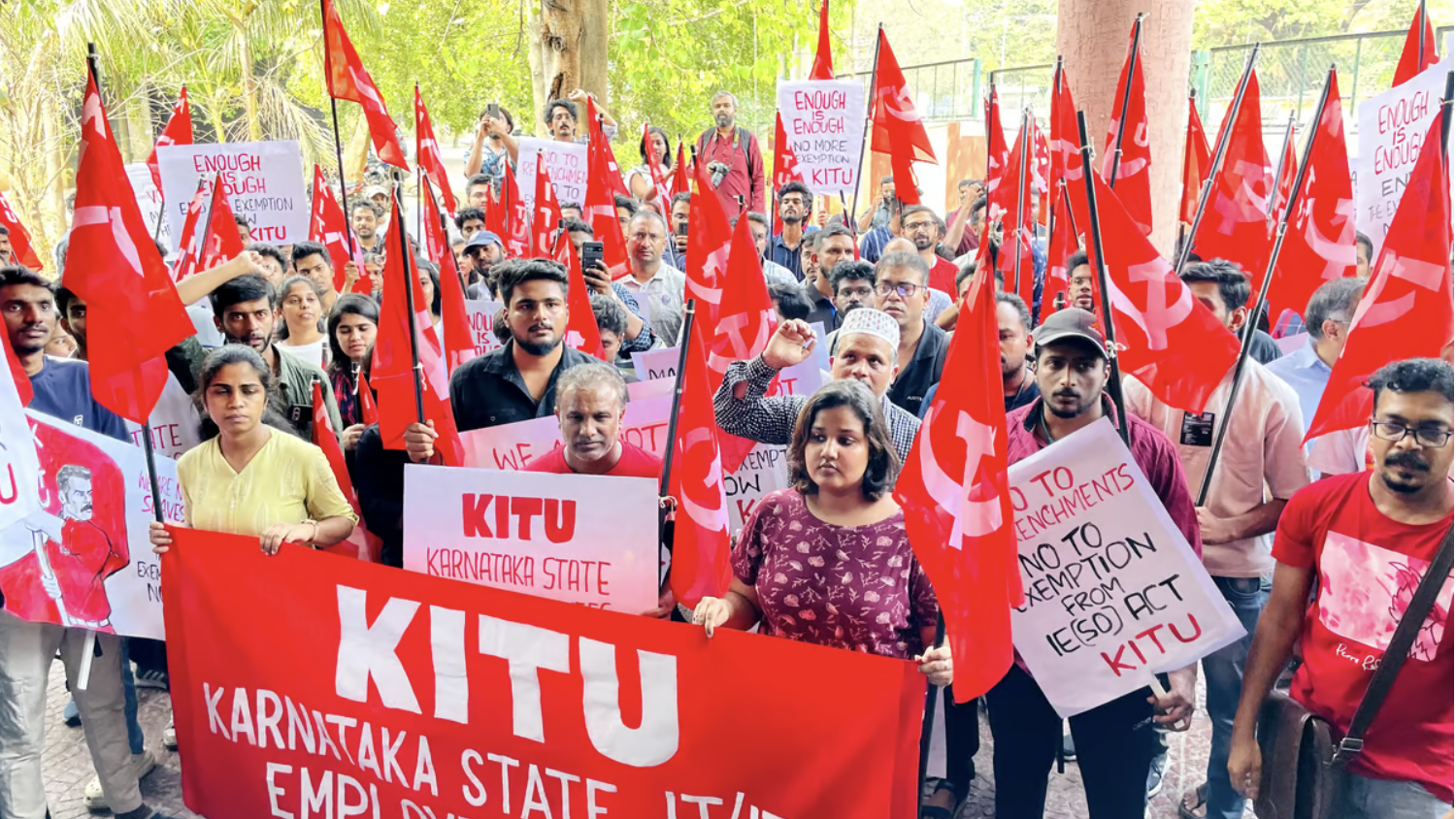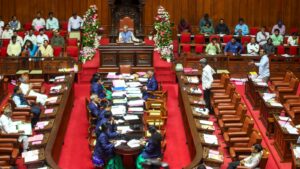Hundreds of IT employees in Bengaluru gathered outside the Karnataka Labour Commissioner’s office on March 16, raising slogans like ‘Inquilab zindabad’ and ‘workers unity long live’. Organized by the Karnataka State IT/ITeS Employees Union (KITU), the protest aimed to draw attention to the alleged anti-worker practices prevailing in the IT and ITeS sector in the state.
One of the primary demands of the protest was to extend the application of the Industrial Employment (Standing Orders) Act, 1946 to the IT/ITeS sector. This Act delineates regulations concerning employee recruitment, working hours, leave policies, and termination procedures. The exclusion of IT employees from this Act has raised concerns about arbitrary terminations, prolonged working hours without additional compensation, and incidents of workplace harassment, as reported by IT employees from various companies in Bengaluru.
The exemption granted to the IT sector from the IE(SO) Act is slated to expire on May 25, 2024. In the absence of its renewal, the IT sector will come under the purview of the state’s labour department, enabling oversight of alleged infringements of workers’ rights. The Karnataka State IT/ITeS Employees Union has urged the government not to renew the exemption, citing employers’ non-compliance with stipulations such as establishing internal committees to address sexual harassment complaints and setting up grievance redressal mechanisms.
Labour Commissioner HN Gopalakrishna IAS assured the protesters that he would engage with stakeholders and address their grievances. This protest follows discussions within the Karnataka government regarding the inclusion of the IT sector under the ambit of the state labour department, with Labour Minister Santosh Lad stressing the importance of reviewing the exemption in light of reported unfair terminations and the challenges faced by affected employees in securing new employment opportunities.
In essence, the demonstration underscored the pressing need for fair labour practices and the protection of workers’ rights in the IT and ITeS industry in Bengaluru. It highlighted concerns about the prevailing lack of regulatory oversight and the need to ensure that IT employees are afforded adequate safeguards and recourse mechanisms in the face of workplace injustices.
Overall, the protest served as a call to action for authorities and industry stakeholders to prioritize the welfare and interests of IT workers, fostering a conducive and equitable work environment conducive to their professional growth and well-being.



